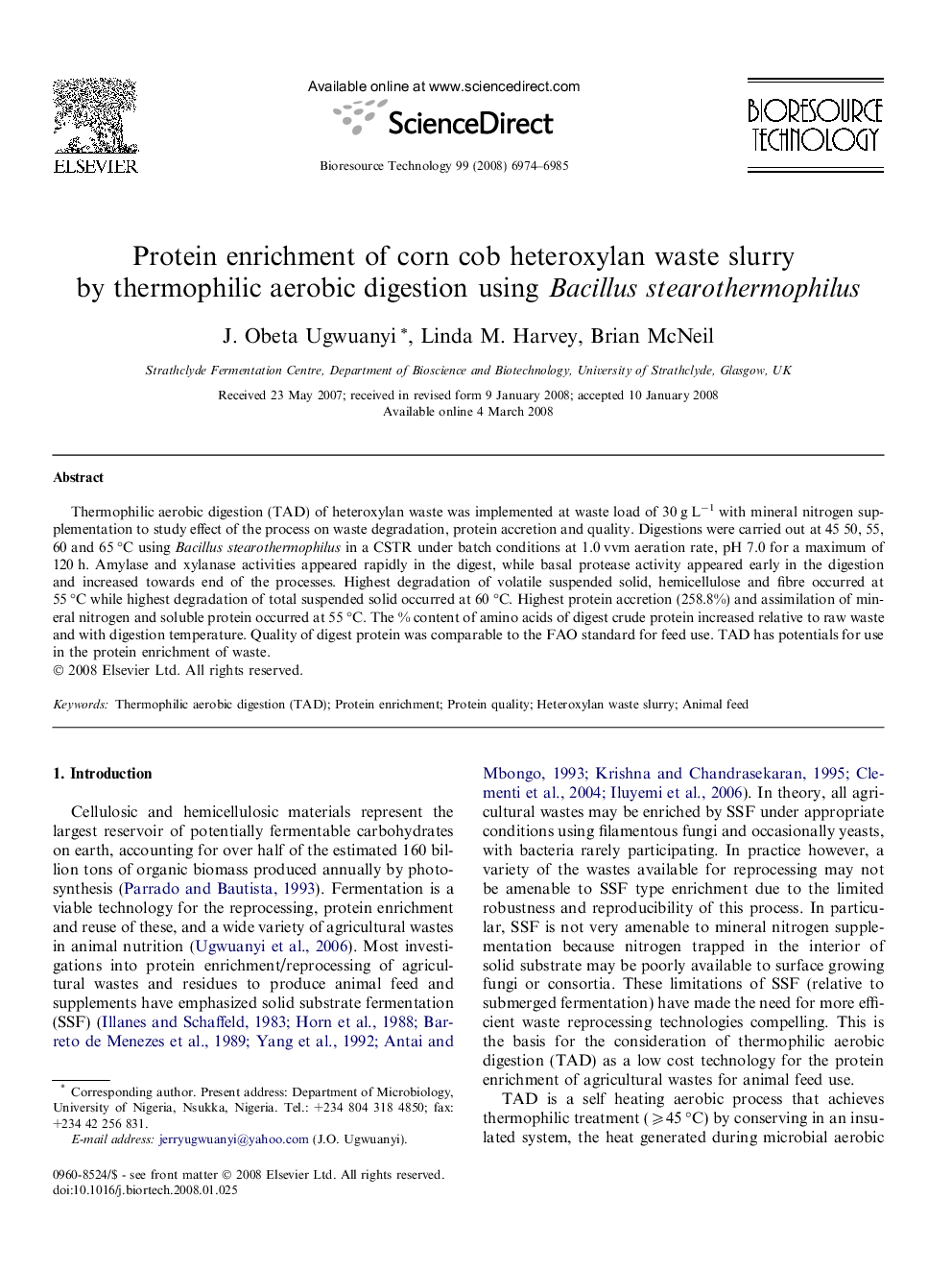| Article ID | Journal | Published Year | Pages | File Type |
|---|---|---|---|---|
| 685279 | Bioresource Technology | 2008 | 12 Pages |
Abstract
Thermophilic aerobic digestion (TAD) of heteroxylan waste was implemented at waste load of 30 g Lâ1 with mineral nitrogen supplementation to study effect of the process on waste degradation, protein accretion and quality. Digestions were carried out at 45 50, 55, 60 and 65 °C using Bacillusstearothermophilus in a CSTR under batch conditions at 1.0 vvm aeration rate, pH 7.0 for a maximum of 120 h. Amylase and xylanase activities appeared rapidly in the digest, while basal protease activity appeared early in the digestion and increased towards end of the processes. Highest degradation of volatile suspended solid, hemicellulose and fibre occurred at 55 °C while highest degradation of total suspended solid occurred at 60 °C. Highest protein accretion (258.8%) and assimilation of mineral nitrogen and soluble protein occurred at 55 °C. The % content of amino acids of digest crude protein increased relative to raw waste and with digestion temperature. Quality of digest protein was comparable to the FAO standard for feed use. TAD has potentials for use in the protein enrichment of waste.
Related Topics
Physical Sciences and Engineering
Chemical Engineering
Process Chemistry and Technology
Authors
J. Obeta Ugwuanyi, Linda M. Harvey, Brian McNeil,
